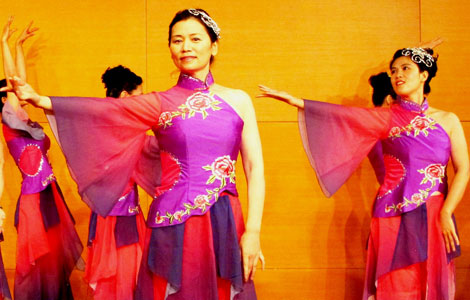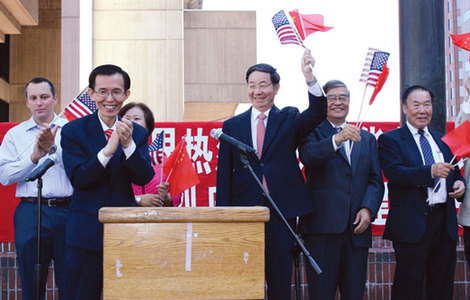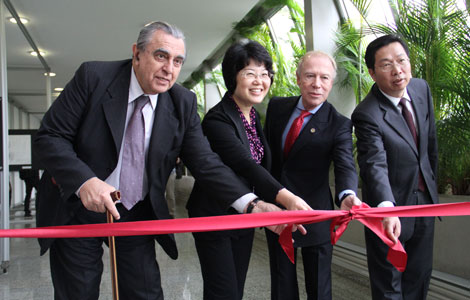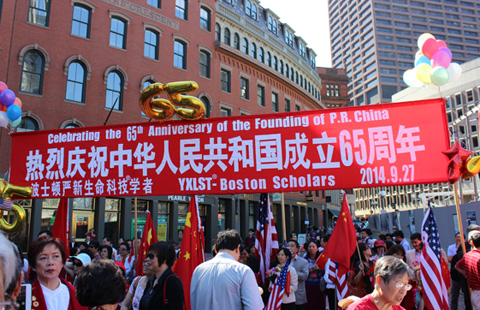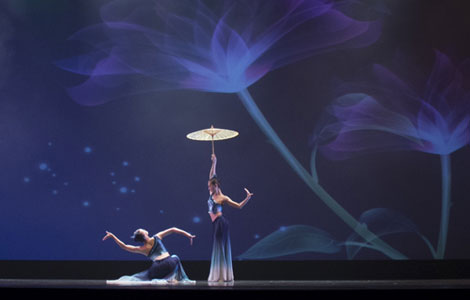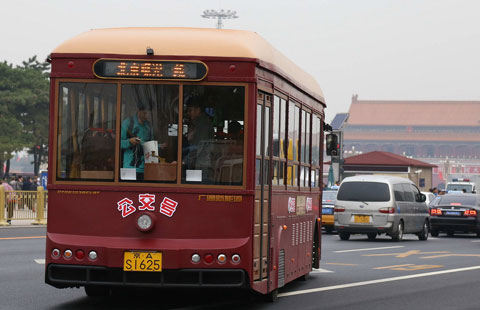Niche sports feeling the chill
Updated: 2014-09-29 07:25
By Sun Xiaochen(China Daily)
|
||||||||
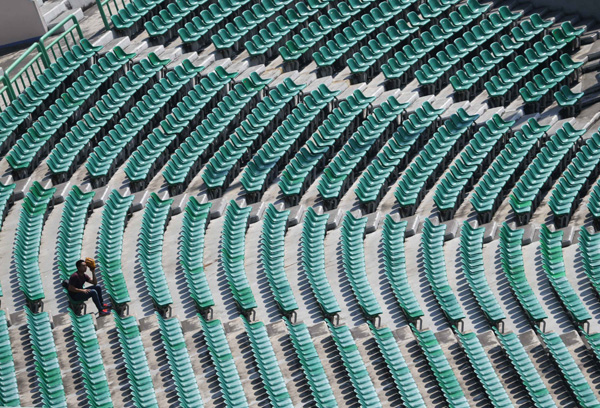 |
|
A baseball fan watches a preliminary round baseball game between Taiwan and Hong Kong at the Munhak Baseball Stadium during the 17th Asian Games on Sept 22. [Photo/Agencies] |
"You just can't help making the comparison and feeling upset sometimes (about the difference in earnings). But I know we are far behind the Japanese in the game, so I just stay at ease with what I earn playing baseball in China," Wang said.
But the game was not all that obscure when it started off in China.
|
FACTS MAJOR NON-OLYMPIC SPORTS IN CHINA KabaddiBoasting more than 4,000 years history in South Asia, kabaddi, a contact sport based on wrestling, enjoys huge popularity in India, Bangladesh, Maldives and Pakistan. It entered the Asian Games in 1990 but hasn't been played and promoted in China yet. The game, which saw two teams, each having seven on-court players, compete against each other to win higher scores by raiding the opponent's court and touching opponents, is one of the most-watched sports in India with more than 435 million TV viewers watching the Indian professional league this year. Squash As a virtually mixture of badminton and tennis, the racquet sport played by two singles players (or two doubles pairs) in a four-walled court with a small hollow rubber ball doesn't appeal to the mainstream audience on Chinese mainland, but enjoys descent popularity in Hong Kong and western countries like the United States, Canada and Britain. China started to promote the sport domestically in 2008 and there are about 100 athletes dedicated in the quick-bouncing sport. Sepak takraw An exciting-to-watch sport featuring high-flying kicks and somersault stunts, sepaktakraw is a widely participated game in Southeast Asian countries like Thailand and Indonesia. Still, the entertaining sport faces tough challenges to gain more exposure in China with only several sports schools and colleges promoting the sport on campus. |
Those like Wang and current national assistant coach Lv Jiangang witnessed the initial surge of interest in baseball in China when seven teams competed against each other with a certain amount of endorsement funds and a fair amount of public attention in the early years of the league.
"We used to take flights for road games and sometimes had our games broadcast nationwide. It's a far cry from what's happening now," Lv said.
The huge blow hit in 2005 when baseball and softball were collectively voted out of the Olympic program, which hampered investors' enthusiasm and government support.
Due to the lack of funding, the league was locked out in 2011 and has not been reinstated since, leaving more than 600 baseball players on the verge of unemployment.
"The exclusion from the Olympics had a deadly effect on the development of baseball in China. Government appropriation was reduced to just one quarter of the previous amount and the sponsors pulled the plug on funding for the league," said Li Gaochao, deputy head of the administration of handball, hockey, baseball and softball of the General Administration of Sport of China.
Lack of facilities
The quest for better promotion and development seems increasingly tough for other sports left out of the Olympics.
After each of their Asian Games match in Incheon, players of the Chinese women's cricket team will not return to the athlete village. Instead, they will take time practicing on the clay training field outside the competition venue.
"We don't have the standard clay field at home so we try to take the opportunity to practice on it more although we are all tired after a match," said Wang Meng, a 26-year-old cricket player.
Professional cricket balls are also a luxury for the Chinese team as there is no domestic manufacturer producing competition-caliber cricket balls due to the small market.
Chinese players usually use tennis ball or softballs in their cricket training and only use new cricket balls brought by foreign coach Rashid Khan of Pakistan for training matches.
"Cricket is not part of Chinese culture nor an Olympic event. We definitely don't have much support. But I feel that if this game is declared at the national level, it will be a huge improvement," said Khan, who came to coach cricket in China in 2006.
Without being allowed to register as State-funded athletes, cricket players in China have no prize money offered from the governing body at the annual national championships. They only receive limit allowances from their affiliated sports schools or colleges.
Still, young female players endure the blazing sun and grinding workout outdoors to invest their youth in a sport that very few people appreciate in China.
"I think it's beautiful when you fight on the field with another 10 teammates and try to outperform the opponent with not only strength but also wisdom and discipline," said cricket player Zhou Haijie, who teaches children badminton to make a living outside of her cricket training.
Professional challenges
With the possibility of a future Olympic spot up in the air, some of the non-Olympic sports' governing bodies have envisioned the professional development of such sports. But the untapped market and lack of public participation continue to be daunting.
The Chinese National Baseball League was supposed to be reinstated in May following a two-year lockout but that was postponed to mid-October after a major sponsor withdrew from investing in the league, said Li Gaochao, deputy head of the handball, hockey, baseball and softball administration.
"With the small market and thin targeted fan group against the backdrop of Olympic exclusion, a lot of investors stay cautious in investing in baseball, claiming they can't see the future of the event in China," Li said.
But a recent central government call to open up the State-dominated sports industry market is a positive sign for some minor sports to grow outside the State umbrella, said Huang Kai, an executive in charge of sepak takraw under the small-ball administration.
The move, made at a State Council's executive meeting earlier this month, urged scrapping the age-old rules requiring administrative approval for organizing commercial and mass sporting events and called for more freedom for private investors in the sports market.
"For some fun-to-watch events like sepak takraw, we can carry out tests in the market for entertainment sports as commercial figure skating shows and acrobatics performances," Huang said.
But the thin talent pool and unfamiliar market will still hamper any such prospect, said sports marketing and consulting expert Zhang Qing.
"First of all, we just don't have enough high-level players of those niche sports to form a performing group. Although it's fun to watch, I think the sports entertainment market is saturated with many options like basketball, soccer and table tennis," said Zhang, founder of the Key-Sports consulting agency.
"Viewers and consumers won't accept and learn to appreciate new events as quickly as we hope."
Contact the writer at sunxiaochen@chinadaily.com.cn
Most Viewed
Editor's Picks

|

|

|

|

|

|
Today's Top News
China thanks foreign talent for contributions
Top venture capitalists meet in Silicon Valley
China, US should cooperate in energy: experts
15 people, mostly teens, shot at Miami nightclub
Currency swap potential boon to Argentia
Sino-Venezuela ties at 'highest level'
FM makes official visit to Mexico
Brazil, China exchanges ink deal
US Weekly

|

|
